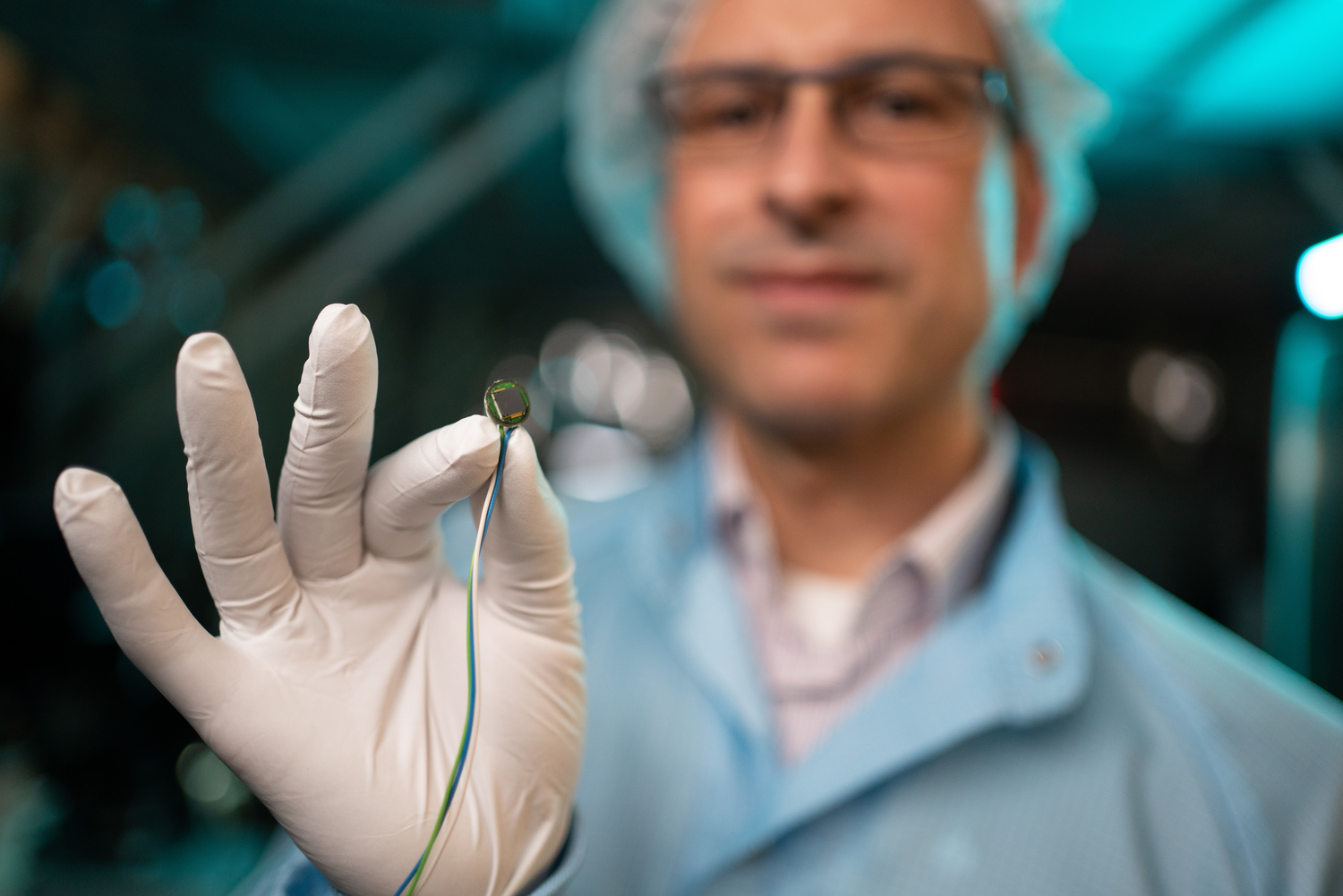
Description
Integrated circuits (ICs, MMICs, ASICs) form the basis of the key technological innovations of our time, such as mobile communications, artificial intelligence, sensor technology, which enables autonomous driving, among other things, or future-proof energy distribution, the smart grid. Semiconductor technology itself is equally innovative, both in terms of technology (production) and circuit design.
The Micro- and Nanoelectronics (M.Sc.) degree programme is aimed at physicists and electrical engineers who wish to pursue a career in the semiconductor industry and research. You have already studied solid state physics and/or electronics in your Bachelor's degree programme. This degree programme expands and deepens your knowledge in the areas of semiconductor physics, technology and components, in the design of integrated circuits in various technologies, in assembly and integration technology as well as in application areas such as communication, radar and sensor technology. The Micro- and Nanoelectronics degree programme qualifies you for jobs in the semiconductor industry in the research and development of innovative semiconductor technologies and components or in the design of innovative integrated circuits. For both career goals, the Micro- and Nanoelectronics (M.Sc.) degree programme will not only provide you with specialised knowledge but also the fundamentals of semiconductor physics and electronics and familiarise you with selected application scenarios.
Study programme structure
The degree programme comprises four semesters with a total of 120 credit points. In the first semester, introductory modules bring the various levels of prior knowledge into line: Physicists learn about electronics, while electrical engineers learn about solid state physics and quantum mechanics in a module. The other modules are divided into three subject areas: "Technology and Devices", "Circuit Design" and "Applications". Two compulsory elective modules must be chosen from each of the subject areas. The focus of the degree programme can be determined by the appropriate choice of five further compulsory elective modules. The programme includes an interdisciplinary module as well as a research project in the penultimate semester and the Master's thesis in the final semester.
Leading semiconductor research institutes in Germany are involved in the degree programme: The Leibniz Institute for Innovative Microelectronics (IHP), the Ferdinand-Braun-Institut, Leibniz-Institut für Höchstfrequenztechnik (FBH), the Fraunhofer Institute for Microintegration and Reliability (FhG-IZM) and the Fraunhofer Institute for Photonic Microsystems (FhG-IMPS) are involved in teaching and also offer opportunities to complete the research module or the Master's thesis in practice.
Professional Fields of Activity
- Semiconductor industry: technology development
- Development of integrated (application-orientated) circuits: in large companies, SMEs and start-ups, e.g. in the communications, electronics in general, automotive, AI, medical technology, sensor technology, energy technology sectors
- Research institutions
Applications and Admissions
Admissions Requirements
- At least a Bachelor's degree in a related study programme.
The degree is is deemed sufficiently similar if- the course content in Mathematics, Theoretical Physics and Experimental Physics is comparable in scope to the Bachelor's degree programme in Physics at BTU
- or the course content in Physics, Mathematics, Electronics and Systems and Field Theory is comparable to the Bachelor's degree programme in Electrical Engineering with a focus on Information Technology or Electronics at BTU or have a comparable scope
- Applicants need a certificate of English proficiency as described in the language requirements.
Only valid certificates will be recognized, "medium of instruction certificates" will not be accepted.

